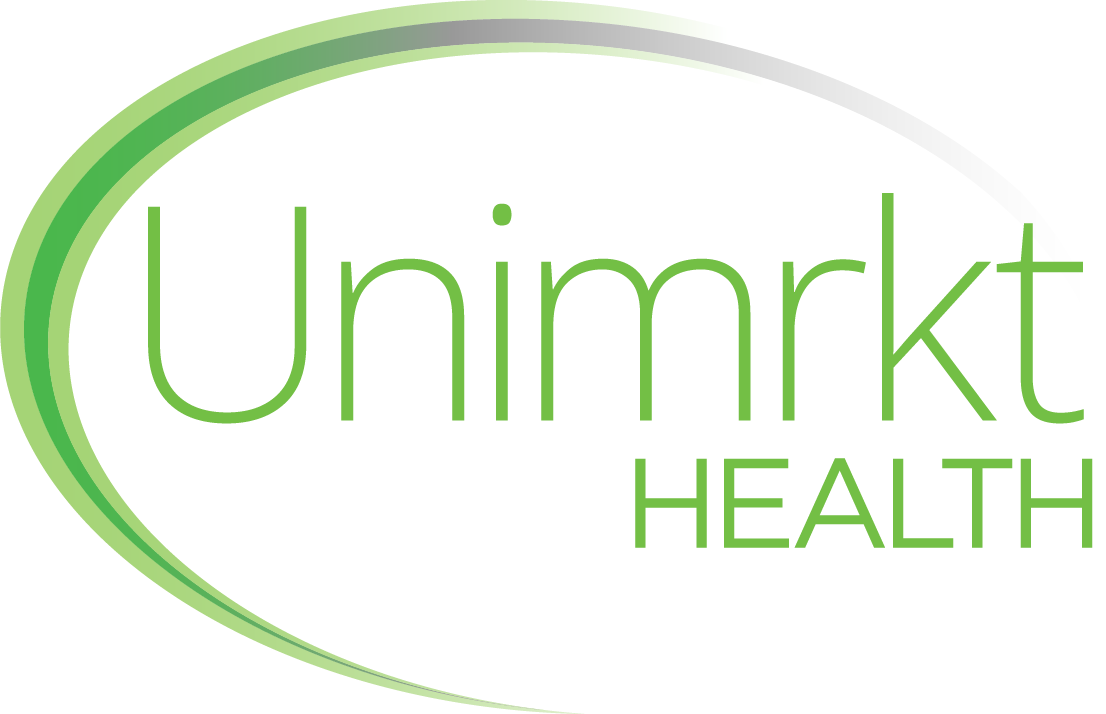7 Key Gaps in Digital Patient Engagement
- Unimrkt Healthcare » Blog » 7 Key Gaps in Digital Patient Engagement
Digital patient engagement has emerged as a critical component of healthcare delivery in the 21st century. From virtual consultations to remote monitoring tools, digital platforms have significantly transformed how patients interact with healthcare providers. However, despite this level of progress, there are still significant gaps that are hindering the full potential of digital patient engagement. These gaps must be addressed immediately for the healthcare sector to offer more seamless and effective experiences. In this regard, any digital healthcare research report can help healthcare organizations figure out these gaps. Through thorough digital healthcare market research, patient engagement can be improved for better health outcomes. In today’s blog, we will discuss seven key gaps currently existing in digital patient engagement scenarios, which once filled could benefit both providers and patients, leading to more efficient and patient-centered care. Let’s get started.
Gap 1: Lack of Personalized Communication
One of the most notable gaps in digital patient engagement is the lack of personalized communication. With the advancements in personalized healthcare, the patients now increasingly expect tailored experiences in different segments. Amid such expectations, many healthcare providers still struggle to deliver customized digital interactions. Generic messages and blanket communication can often alienate patients, especially when the information does not pertain to their specific needs or conditions. According to a digital healthcare research report, patients are more likely to engage with digital platforms when the communication is personalized, making them feel understood and valued. To bridge this gap, healthcare providers must adopt advanced technologies like AI-driven analytics and patient data segmentation. By integrating these tools, organizations can ensure that patients receive relevant information at the right time. Personalized communication is not just about sending reminders for appointments; it’s about offering tailored advice, treatment updates, and educational materials that are specific to each patient’s medical history and preferences. Providers that adopt personalization in their digital engagement strategies see higher patient satisfaction and retention rates.
Gap 2: Limited Access to User-Friendly Digital Platforms
While the healthcare sector has seen an increase in digital tools, many of these platforms remain complex and difficult for patients to navigate. Poor user experience (UX) can lead to frustration, resulting in disengagement and reduced utilization of the available services. Patients prioritize ease of use when interacting with digital health tools, whether it’s booking appointments, accessing medical records, or receiving virtual care. The key to addressing this issue lies in designing intuitive, user-friendly interfaces that accommodate patients of all ages and technological proficiency levels. Mobile optimization is crucial, as many patients prefer accessing health platforms through smartphones. Healthcare providers must collaborate with UX designers and conduct thorough testing to ensure their digital platforms are accessible and easy to use.
Gap 3: Data Privacy and Security Concerns
A significant gap in digital patient engagement stems from the fear that personal health information could be compromised, leading to a lack of trust in digital platforms. Without strong data privacy measures, patients are reluctant to fully engage with digital tools, which limits the potential benefits of these platforms. To address this concern, healthcare providers must prioritize robust data security protocols. Implementing encryption, multi-factor authentication, and strict compliance with healthcare regulations like HIPAA can help reassure patients that their data is secure. Clear communication about how patient data is protected is equally important. Providers should regularly update patients on their privacy policies and any new security measures implemented. Building trust through enhanced data security will encourage patients to engage more fully with digital health tools, fostering long-term engagement and loyalty.
Gap 4: Insufficient Integration with Health Records
A seamless integration between digital patient engagement tools and electronic health records (EHRs) is essential for providing a cohesive healthcare experience. Unfortunately, many digital platforms operate in isolation, preventing patients from accessing all of their health information in one place. This gap creates disjointed experiences and confusion, as patients may need to log into multiple systems to retrieve their health data. Healthcare providers need to adopt interoperable systems that allow for the smooth exchange of information across platforms. By integrating patient portals with EHRs, patients can view their medical history, lab results, and prescriptions in one central location, which enhances their ability to manage their health. Digital healthcare market research reveals that organizations offering integrated digital solutions not only experience improved patient engagement but also witness a boost in operational efficiency simply by reducing administrative burdens on healthcare staff.
Gap 5: Inadequate Mobile Health Support
The rise of mobile health (mHealth) has been a game-changer in patient engagement, allowing patients to manage their health on the go. Nevertheless, many healthcare providers still lack adequate mobile support for their digital platforms. This gap limits patient accessibility, particularly for those who rely heavily on smartphones for day-to-day tasks. Today’s patients increasingly expect mobile-friendly solutions, especially for services like appointment scheduling, telehealth, and remote monitoring. To close this gap, healthcare organizations must prioritize mobile optimization in their digital strategies. They must create apps that are easy to navigate, responsive on all devices, and compatible with various operating systems. Moreover, these mobile platforms should support all the features available on desktop versions, ensuring a consistent experience. According to digital healthcare market research, healthcare providers who invest in comprehensive mHealth support see higher engagement rates, particularly among younger and tech-savvy patient populations.
Gap 6: Limited Digital Health Literacy
Digital health literacy remains a significant barrier for many patients, especially those in older demographics or from underserved communities. This particular gap prevents patients from fully utilizing the digital tools available to them, leaving them disconnected from essential healthcare services. A digital healthcare research report points out that patients with limited digital skills are less likely to engage with online health portals or virtual care platforms, reducing the overall effectiveness of digital patient engagement efforts. Healthcare providers can bridge this gap by implementing educational programs aimed at improving digital health literacy. Offering tutorials, guides, and support hotlines can help patients learn how to use digital tools effectively. In addition, simplifying the language and instructions on digital platforms can make them more accessible to all patients. Digital literacy is a key factor in boosting patient engagement and ensuring equal access to healthcare services.
Gap 7: Poor Continuity of Care in Digital Channels
Continuity of care is a cornerstone of effective healthcare, but it is often disrupted when patients transition between digital and in-person care. This is evident when patients are unable to maintain a consistent dialogue with their healthcare providers across digital platforms, leading to fragmented care experiences. According to a digital healthcare research report, patients who experience poor continuity of care are more likely to feel dissatisfied and disengaged with the healthcare system. To overcome this challenge, healthcare providers must ensure that digital interactions are part of a broader, coordinated care strategy. This includes seamless communication across digital platforms, easy access to follow-up care, and clear instructions for ongoing health management. Integrating digital tools with in-person care will ensure that patients receive the support they need at every stage of their healthcare journey.
Final Word
Addressing these seven key gaps in digital patient engagement is crucial for healthcare providers aiming to deliver high-quality, patient-centered care in today’s digital age. Closing the gaps that we discussed today can significantly boost patient engagement and satisfaction. In this regard, it will be a wise move to invest in digital healthcare market research, as a well-studied digital healthcare research report can help healthcare providers create more connected, efficient, and patient-friendly experiences that would ultimately improve health outcomes across the spectrum. It’s also worth noting that to make the most out of your medical market research endeavors, it’s crucial to work with reputable market research companies. If you are looking for someone with an impeccable track record of conducting healthcare market research, look no further than Unimrkt Healthcare. Throughout the years, we have consistently applied scientifically validated methodologies for research in the health industry, ensuring the delivery of actionable data through meticulous targeting of respondents. To learn more about how we can help you with your medical market research endeavors, call +91-124-424-5210, +91-9870-377-557, or email sales@unimrkthealth.com. You may also fill out our contact form, and our team of experts will assist you as soon as possible.
Recent Posts
- 10 Medical Online Survey Mistakes You Must Leave Behind in 2025
- How Qualitative Healthcare Research Can Accelerate Ethical AI Adoption
- Trust as a Growth Strategy: What Healthcare Leaders Can Learn From Business Market Analysis
- Mapping the Healthcare Value Chain: A Market Research Perspective
- Decoding Emotional Triggers in Treatment Choices: A Qualitative Approach
Archives
Quick Enquiry
Customer Service, We Make it Better
Related Posts:
Let's Connect
Please, fill in the form to get in touch!



